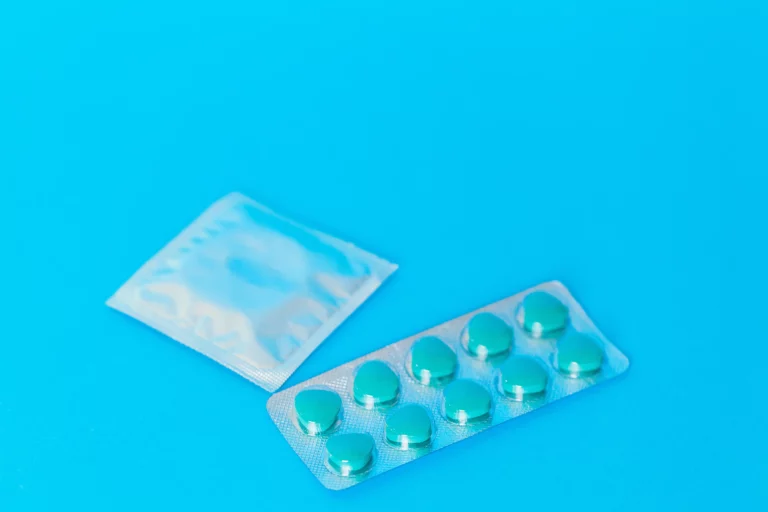Erectile dysfunction (ED) afflicts over 30 million men in the United States, with prevalence increasing with age. While treatment options like Viagra and Cialis have helped many men, these drugs merely target symptoms and can have side effects and contraindications. This has spurred interest in whether common medications like low-dose aspirin, taken by millions of people for cardiovascular benefits, could present a safer, more accessible alternative ED solution.
What Causes ED and How Do Current Medications Work?
ED occurs when a man has difficulty getting or maintaining an erection firm enough for sex. The most common cause is reduced blood flow into the penis, often due to blood vessel damage from diabetes, hypertension, smoking, or atherosclerosis.
Normal erections rely on a complex interplay of nerve signals, hormone effects, and adequate blood supply. Any disruption in these normal mechanisms can impede erections. Stress, depression, obesity, and sleep disorders also influence erection quality.
Current oral ED drugs improve erections by inhibiting PDE5, an enzyme that promotes blood vessel constriction in the penis. By blocking PDE5, medications like sildenafil (Viagra) and tadalafil (Cialis) enhance blood flow into the penis. These medications don’t cure ED, but temporarily improve function for intercourse.
However, PDE5 inhibitors have limitations. They can cause headaches, flushing, upset stomach, and other side effects. Men taking nitrates for heart conditions cannot use PDE5 inhibitors due to severe hypotension risks. Some men find PDE5 drugs ineffective. And medications that must be taken 1-2 hours before sex are not always convenient. This prompts the exploration of alternative treatment approaches like aspirin.
Generic Viagra Offer

Available Viagra options: 50mg 100mg
Available in different packs: from 30 pills to 180 pills
Fast & Discreet Delivery: Get it delivered right to your door, hassle-free.
How Could Aspirin Potentially Help Treat ED?
While best known as a pain reliever, aspirin has a wide range of effects due to inhibiting cyclooxygenase (COX) enzymes. This COX inhibition blocks production of molecules called prostaglandins which are involved in inflammation and control of blood flow in the body.
Specifically, aspirin reduces prostaglandin I2 and thromboxane A2. Prostaglandin I2 widens blood vessels while thromboxane A2 encourages vessel narrowing and clot formation. By decreasing thromboxane A2, aspirin makes blood platelets less “sticky” and blood vessels more inclined to relax and dilate.
Through these mechanisms, some doctors believe regular low-dose aspirin could potentially improve blood flow to the penis and treat ED, especially in men where ED stems from inadequate penile blood supply. The blood vessel relaxation effects are similar to how PDE5 inhibitors enhance blood flow.
What Does The Research Show So Far?
While aspirin’s ED benefits make theoretical sense, clinical evidence is still limited regarding its real world efficacy and safety. Small studies have shown some promising results:
- A trial of aspirin 80mg combined with vitamin E 600mg daily found improved erection strength in men with cardiovascular disease and ED after 4 weeks.
- Patients already taking aspirin for heart benefits may experience ED improvement as a side effect. One study saw resolution of ED in over half of cardiac patients using aspirin.
- Diabetic rats given aspirin had increased nitric oxide, reduced inflammation, and improved cavernosal blood flow. Human trials are still needed.
However, other studies found limited effects:
- One trial showed aspirin 300mg/day for one month did not significantly improve ED compared to placebo in patients with diabetes.
- Another study of aspirin 325mg vs placebo for 9 months did not resolve ED in men with prior coronary bypass surgery.
Clearly, more research is still needed to clarify if aspirin has meaningful efficacy for ED, and which patient populations might benefit most. Larger, long-term trials are warranted.
Considering Safety – Understanding the Bleeding Risks
While aspirin poses fewer systemic side effects than other ED medications, its blood thinning effect does elevate risk of gastrointestinal bleeding and hemorrhagic stroke. Doctors remain cautious about routinely recommending aspirin as an ED therapy given these potential harms.
One study found men taking aspirin strictly for ED had a 2.5% increased risk of gastrointestinal bleeding requiring hospitalization. However, men over 50 taking aspirin for cardiac protection saw a smaller 0.5% increased bleeding risk.
This suggests lower dose regimens around 81mg may be safer long-term for older patients already using aspirin for other medical indications. More data is needed to establish appropriate aspirin protocols specifically for ED that balance benefits and bleeding risks.
How Does Aspirin Compare to Existing ED Medications?
PDE5 Inhibitors Like Viagra or Cialis
- Highly effective but temporary
- Greater side effects
- Not appropriate for men taking nitrates
- Must be timed with sex
Aspirin
- Improved blood flow may treat cause of ED
- Potentially safer long term than PDE5 drugs
- Already used widely for other medical benefits
- Inexpensive and accessible OTC
- Uncertain efficacy and ideal dosing/duration
While PDE5 drugs like Viagra tackle ED symptoms more reliably, aspirin offers advantages as a readily available, low cost option that may address root causes for some patients. More studies determining its optimal application are still required.
Future Outlook – Should Aspirin Have a Role in ED Treatment?
Current evidence does not yet support universally recommending aspirin as an effective ED solution. Much larger randomized controlled trials are still needed to fully assess efficacy, ideal dosing, bleeding risks in younger men, and long-term impacts on erectile function.
However, aspirin holds promise as a simple, low-risk intervention for select patients with ED related to blood flow impairment, especially if already using aspirin for other medical purposes. Its ease of access, low cost, and potential to address ED mechanisms warrant further exploration through rigorous clinical investigation.
If aspirin’s ED benefits are definitively established through broader research, it could provide an inexpensive first-line or adjunctive treatment option before pursuing more invasive therapies. Patients with contraindications to PDE5 inhibitors may also find aspirin a valuable alternative solution.
While unlikely a cure-all for ED, aspirin may emerge as a helpful complementary approach in a modern toolbox of ED management options. Men struggling with ED should discuss with their doctor if adding low-dose aspirin could be beneficial alongside other lifestyle changes and proven medical therapies.






